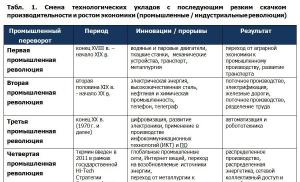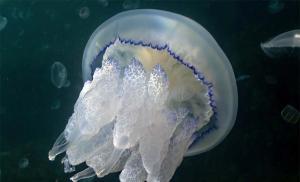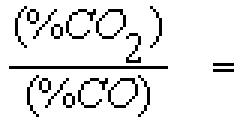Acute inflammation of the prostate. Acute prostatitis and methods of effective treatment
To move on to considering methods of treating acute prostatitis, you need to understand its causes. Acute is a purely male disease that occurs due to several reasons:
- infection in the excretory ducts of the prostate,
- the occurrence of the disease due to stagnation of prostate secretions.
Infection
The infection is the most common cause The occurrence of infectious acute prostatitis are diseases transmitted through genital secretions from one person to another (STDs).
Infectious agents are microorganisms of various taxonomic groups: fungi, bacteria and viruses.
Most often, acute prostatitis occurs as a result of bacterial invasion. A necessary condition is the entry of bacteria into the human body through the genitourinary tract.
Acute prostatitis can be obtained as a complication of bacterial urethritis, orchitis,.
According to the patient's medical history, it is possible to trace a temporal connection between the diseases preceding prostatitis.
Endogenous causes, stagnation of prostate juice
In the case of non-infectious acute prostatitis, the cause of the disease is stagnation of juice prostate gland.
To get sick with acute non-infectious prostatitis, you need to follow a few simple rules:
- work at the computer for a long time;
- rarely walk, spend a lot of time in bed;
- smoking, drinking alcohol frequently (even beer);
- neglect walks in the fresh air and going to the gym;
- give up active rest, choosing instead to watch a movie or other sedentary activities;
- often become hypothermic;
- rarely have sex.
In addition to lifestyle, the development of acute prostatitis is also influenced by injuries to the pelvic organs.
When injured, the release of prostate secretions becomes difficult and an inflammatory process begins in the prostate.
Symptoms
Considering the causes of acute prostatitis, three groups of manifestations of this disease can be distinguished (corresponding to the stages of the disease):
- Catarrhal;
- Parenchymatous;
- Follicular.
Catarrhal symptoms.
In this case, the patient has an enlarged prostate. Urination becomes difficult and painful as the urinary tract is compressed.
Complaints of a feeling of residual urine in the bladder are common.
Sometimes a concomitant specific symptom of acute prostatitis can be posterior urethritis.
Follicular signs.
The urine takes on a whitish tint, this is due to the fact that pus is secreted along with the urine.
Patients complain of soreness in the groin and perineum, which are no longer clearly associated with the process of urination. Body temperature can rise to 38 degrees Celsius. About other signs of prostatitis.
Parenchymal symptoms.
Incomplete emptying is common Bladder, accumulation of residual urine.
Treatment of acute inflammation of the prostate gland
The main task drug treatment acute prostatitis is to eliminate the pain syndrome and pathogen, restore normal urination.
- Diuretics – uroflux, herbal infusions that have a diuretic effect. The point of use is to organize a stable and voluminous output of urine from the bladder.
- Antipyretic – paracetamol, analgin, aspirin and others. It is used to reduce the patient’s temperature to normal levels, eliminates pain in the joints and head.
- Antispasmodics and alpha-blockers - no-spa, prazosin. These drugs have a relaxing effect on smooth muscles, thereby relieving tension and reducing spasms. In addition, baclofen and diazepam are used to target relaxation of the pelvic muscles.
- Antibiotics.
Antibiotics are the main force that cures a patient from acute prostatitis. Correct prescribing of these will be the key to medical success.
In order to choose the right antibiotic, you need to find out exactly which microorganism provoked prostatitis. It is imperative to do a bacterial culture of prostate juice.
In practice, you may find that a urologist, without such a study, will prescribe you an antibiotic based on statistical data. In this case, request or contact another specialist.
Treatment of acute prostatitis with antibiotics is a long procedure. It can take up to four weeks, and this is absolutely correct.
The drug will act within a few days, significantly improving the patient’s condition, but insufficient antibiotic intake will lead to re-inflammation and the process becoming chronic.
The key to success is a combination of medications. To treat acute prostatitis, one antibiotic should be combined with another.
This is explained by both varying degrees of bioavailability and variable microbial resistance.
Today, several groups of drugs can be distinguished for antibacterial therapy of acute prostatitis: beta-lactams (penicillin), fluoroquinolones, macrolides (doxycycline, chloramphenicol).
Fluoroquinolones are the most aggressive drug against bacteria, which is why they are prescribed for acute processes.

Prostate massage and healthy image life should also be included in the prevention of acute prostatitis. Physiotherapy procedures are prescribed to speed up the recovery process of the prostate gland.
Thus, acute prostatitis requires serious treatment and timely contact with a urologist. The correct approach to treating the disease is the key to a successful recovery.
If treatment is ineffective, the process will become chronic and relapses are possible.
One of the most common male diseases is prostatitis. It is diagnosed in almost half of middle-aged and elderly men. There are two groups of the disease - infectious and non-infectious, with acute and chronic forms.
Acute prostatitis
Acute prostatitis is inflammation of the prostate ducts caused by pathogens. By introducing themselves into the prostate tissue, they provoke the development of an acute inflammatory process.
The disease is divided into 3 stages of development, which without appropriate treatment replace each other:
- Catarrhal (initial) stage– occurs due to minor inflammation of the excretory ducts of the prostate gland leading to an increase in the size of the prostate. During the treatment, the treatment helps to quickly and without complications cope with the existing problem. If treatment is not started and time is lost, the disease moves to the next stage.
- Follicular stage– the inflammatory process spreads to some lobules of the gland or the entire prostate. This provokes swelling and blockage of the secretion, which leads to purulent inflammation and the next stage of development.
- Parenchymal stage– purulent inflammation spreads not only to the prostate gland, but also to the rectal tissue, which can lead to serious, irreversible consequences. The disease can become chronic or develop into a prostate abscess.
Causes
Why does prostatitis worsen? There are many factors that provoke exacerbation. They can be both infectious and non-infectious in nature.
In infectious acute prostatitis, the following occurs:
- Entering the body of pathogens (Escherichia coli, staphylococci, streptococci)
- Infection with urogenital sexually transmitted infections (chlamydia, gonorrhea, candidiasis, mycoplasma, etc.)
- Cystitis ( acute cystitis) – the introduction of microbes into the prostate from the bladder.
- Infection enters the prostate gland through hematogenous drifts (through blood) from foci of purulent inflammation (pneumonia, abscess, osteomyelitis);
- Infection of the prostate through the lymphatic tract.
Acute non-infectious prostatitis is provoked by:
- Irregular or overly active sexual activity.
- Maintaining a sedentary lifestyle.
- Poor circulation in the prostate.
- Chronic constipation.
- Presence of stones in the prostate.
- Hypothermia of the body.
- Varicose veins of the small pelvis.
- Alcohol abuse.
- Poor nutrition.
- Complication after a cold.
- Nervous disorders.
- Decreased immune strength of the body.
Symptoms of manifestations
The disease develops rapidly and is accompanied by the appearance various symptoms(depending on the stage of the disease).
Characteristic signs of the catarrhal stage:
- Pain and feeling of heaviness in the perineum.
- Increased frequency of nighttime urges.
- Pain when urinating.
- Slight temperature.

The follicular stage is characterized by:
- Retention of urination.
- Feeling of incomplete emptying of the bladder.
- Painful sensations during defecation.
- Swelling and tenderness of the prostate.
- Increased leukocytes in the blood.
The parenchymal stage is manifested by the following symptoms:
- Fever.
- Chills.
- Thirsty.
- Decreased appetite.
- A significant increase in temperature to 39° and above.
- Pain and feeling of a foreign object in the anus.
- Discharge of mucus from the anus.
- Sharp pain when urinating.
- Difficulty urinating or stopping completely.
- Aching in the joints.
- Instability general condition(feeling tired, headache, nervous breakdowns).
If you experience any unpleasant sensations, you should not postpone your visit to the doctor, since the initial stage of the disease is easier to treat and does not cause serious complications.
Diagnostics
Due to its pronounced symptoms, acute prostatitis is easily diagnosed.
Additional diagnostic methods are:
- Rectal temperature measurement.
- Examination of the lymph nodes of the groin and perineum.
- Blood tests (general, protein and PSA)
- Urinalysis (in acute prostatitis, an increase in leukocytes, red blood cells, protein and bacteria is observed)
- Examination of smears from the urethra.
- Rectal examination of the prostate gland (determining size, structure, pain response)
- Bacterioscopic examination of smears taken (to identify the pathogen and its sensitivity to various antibiotics)
- Prescription of transrectal ultrasound, CT or MRI of the pelvic organs (if necessary).
The diagnosis helps to select the necessary drugs to eliminate this disease.
Treatment of acute prostatitis
The course of acute prostatitis is very complex, so it is often carried out in a hospital setting. Patients are prescribed bed rest and carefully selected nutrition.
The main way to combat acute prostatitis is drug treatment,
It is primarily aimed at relieving pain, restoring normal urination, and eliminating the causative agent of the disease.
For this purpose the following drugs are used:
- Antibiotics ( Ofloxacin, Norfloxacin, Ceftriaxone, Gentamicin, Kanamycin and etc.). They are prescribed according to a diagnostic study of prostate secretions (depending on the causative agent of the disease). Duration of use is at least 2 weeks;
- Antispasmodics ( No-shpa, Mydocalm, Tolperil) is used to reduce muscle spasm and rapid pain relief;
- Alpha blockers ( Tamsulosin, Flomax, Omnix etc.) are used to relax the muscles of the urethra;
- Anti-inflammatory drugs in the form of tablets, injections and rectal suppositories ( Ibuprofen, Nimesulide, Diclofenac, Miloxecam), to relieve pain and reduce inflammation in the prostate.
- If anti-inflammatory drugs do not have the desired effect, prescribe hormonal drugs (Prednisolone, Dexamethasone).
We should not forget that medications must be taken strictly under the supervision of a doctor, in compliance with the prescribed dosage.
Preventive measures
Acute prostatitis is easier to prevent than to cure. Therefore, maintaining a proper lifestyle will reduce the risk of this disease.
This is facilitated by:
- Compliance with personal hygiene rules.
- Regular sexual activity with a regular partner.
- Regular exercise.
- Compliance with drinking regime.
- Balanced diet.
- Annual preventive examinations.
- Avoiding hypothermia.
- Long walks on foot.
- Performing a set of exercises (to improve blood circulation in the pelvic organs)
- Maintaining a sleep and rest schedule.
- Stable bowel movements.
- Strengthening the immune system and nervous system.
- Getting rid of bad habits(alcohol abuse and smoking).
A healthy lifestyle is the path to male longevity, which is in the hands of every man.
Unlike the chronic form, acute prostatitis appears suddenly, the signs of prostatitis appear very strongly. Prostatitis is characterized by the development of inflammatory processes, hence the corresponding symptoms of the disease.
Acute prostatitis is characterized by:
- sudden increase in temperature, heat and fever;
- there are sharp pains in the perineum and groin;
- pain in the area anus;
- problems with urination and bowel movements.
Acute prostatitis can manifest itself in three forms:
- catarrhal- inflammation develops no further than the mucous layers;
- follicular- inflammatory processes spread throughout the prostate or its lobules;
- parenchymal- inflammation reaches the interstitial tissues of the prostate (usually this form occurs as a result of poorly performed operations).
Diagnosis of acute prostatitis, determination of its form and stage is carried out by a urologist. The key indication for contacting a specialist is problems with urination, however, with acute prostatitis, the symptoms are so severe that a man rarely has the strength and desire to ignore a visit to the hospital.
As a rule, examination of the prostate gland is carried out through the rectum.
The doctor determines the condition of the organ based on key indicators:
- consistency;
- symmetry;
- painful sensations patient, arising during palpation.
A urine test is required. In acute prostatitis, it will definitely be found in the urine a large number of leukocytes.
Transrectal ultrasound can be used for diagnosis, however, in cases where the pain is too severe and unbearable, ultrasound is performed only transabdominally.
If surgical intervention is planned (when the disease has taken a destructive form - the formation of purulent foci, etc.), then it is advisable for the patient to additionally undergo an MRI or CT scan in the pelvic area.
Treatment of acute prostatitis: studying antibiotics for its treatment
 Treatment of acute prostatitis must be timely, the patient must follow all doctor's instructions. This disease is extremely dangerous for the male body due to its development dangerous complications, therefore treatment should be organized in a hospital.
Treatment of acute prostatitis must be timely, the patient must follow all doctor's instructions. This disease is extremely dangerous for the male body due to its development dangerous complications, therefore treatment should be organized in a hospital.
The antibiotic treatment regimen for acute prostatitis is as follows: a man is prescribed an antibiotic specially selected for a specific infection, which is taken for a certain period of time (the length of time the drug is taken varies depending on the form and severity of acute prostatitis). If the drug helps little or does not help at all, then the course of treatment can be extended for a week, or the medicine can be changed to another. If an abscess occurs, its treatment is only possible through surgical opening.
Treatment of acute prostatitis can last up to 4 weeks- this is quite normal and should not scare a man. The prescribed medications should be taken in the required dosage for the required number of days so that the disease disappears and cannot become chronic.
Treatment of acute prostatitis with antibiotics is primarily to eliminate severe pain, as well as destroy the causative agent of infection in the prostate. Drugs are prescribed to normalize the functioning of the urinary system.
In the treatment of acute prostatitis, the following groups of drugs are prescribed:
- Antibacterial drugs, selected for the individual case of the disease.
- Diuretics to stabilize the functioning of the bladder and promote normal urine output. Infusions of herbs with a diuretic function, as well as taking Uroflux, can help.
- Taking antipyretic drugs to remove painful sensations in the joints and head, reduce the temperature to gentle levels and normalize it.
- Taking antispasmodics and alpha-blockers in order to relax smooth muscle. This will relieve tension in the body and reduce spasms. Usually they take No-shpu and Prazosin.
Rectal suppositories or, more simply put, suppositories, are effective method treatment of acute prostatitis. The suppositories are very well tolerated by the male body and are quickly absorbed.
But here, too, the purpose of a particular suppository will depend on the form of acute prostatitis:
- Antibiotic suppositories: Such suppositories immediately solve two problems - they fight infectious processes and eliminate painful spasms in the prostate. The fight against pathogens manifests itself in one of two ways: an antibiotic can either stop the process of reproduction of harmful microorganisms, or cause the death of the infection.
- Candles for leveling inflammatory processes: Since such drugs contain non-steroidal substances, treatment with suppositories of this type is fraught with a number of complications.
You should not take suppositories against inflammation if a man is sick:- bronchial asthma;
- allergic rhinitis;
- intestinal ulcer.
- Candles for pain relief: such suppositories serve to stimulate blood circulation in the sphincter area in order to restore the condition of the prostate, which will relieve pain.
How to relieve an acute attack of prostatitis at home?
 If acute prostatitis takes you by surprise, and there is no way to seek help from a specialist, then you need to provide first aid to yourself. The main task is to reduce pain to a tolerable level. A man can take a drug that has pain-relieving properties, for example, aspirin (Important: the drug must be a non-steroidal type!).
If acute prostatitis takes you by surprise, and there is no way to seek help from a specialist, then you need to provide first aid to yourself. The main task is to reduce pain to a tolerable level. A man can take a drug that has pain-relieving properties, for example, aspirin (Important: the drug must be a non-steroidal type!).
You can take a bath with warm water (not hot!) or briefly immerse yourself in a basin of water (your buttocks should be completely immersed in the water). Since attacks of acute prostatitis are accompanied by sharp pain, immediately limit any physical exercise. If the situation provokes stress, then you should take a sedative.
It is imperative to drink as much liquid as possible, and preferably it should be regular drinking water without gas. Drinking plenty of fluids helps solve the urinary problem for a while before the man has time to see a doctor.
How to relieve acute pain with prostatitis using folk remedies?
There are several ways to relieve acute attacks of pain in acute prostatitis.
The following can be distinguished:
- Infusion of burdock roots: a spoonful of roots should be finely chopped and boiled for about twenty minutes. Then the broth should be infused for about an hour. Strain the cooled mixture and drink one hundred grams before meals.
- A mixture of birch buds, immortelle flowers and St. John's wort (you can also add chamomile, it has good soothing properties). Take all the ingredients in equal proportions, chop finely, pour a spoonful of the mixture with two glasses of hot water and leave for about twenty minutes. Drink before meals.
- Decoction of asparagus root. The roots of the plant are finely chopped and boiled for about ten minutes. Strain the broth and drink every four hours until improvements appear.
Nutrition for acute prostatitis: choosing the right diet
If a man is diagnosed with acute prostatitis, he will have to give up many foods (or significantly limit consumption) in his diet.
The diet for acute prostatitis should exclude:
- any smoked meats;
- alcoholic and carbonated drinks;
- strong tea and coffee;
- canned food (any);
- dishes with lots of spices;
- any fried and fatty foods;
- fruits with a lot of acids;
- cauliflower, legumes and other products that promote gas formation;
- mushrooms.
So what can you eat still be included in the menu for proper nutrition for acute prostatitis? Only those foods that are healthy and easy to digest.
These include:
- different kinds lean meat (preferably boiled);
- fish;
- vegetables and fruits;
- onion and garlic.
It is useful to include milk, dairy and fermented milk products in your diet.
And it has not flowed into, you should not delay your appearance to.
Timely adoption of medical measures and careful adherence to the doctor’s instructions will allow you to get rid of the problem forever and avoid the development of complications.
As we said above, an acute form of the disease can develop in any man. Typically, the causative agents of the disease are various types of infectious agents: staphylococci, streptococci, coli, and many other microorganisms.
Often, pathogenic microbes enter the prostate through its excretory ducts (for example, with urethritis). Less commonly, the infection penetrates the prostate from an inflamed bladder (for example, with).
Accordingly, experts have derived the following:
- chaotic sexual relations;
- presence of STDs and other infections in the sexual partner;
- use of a urethral catheter;
- carrying out instrumental intervention in the area of the urethra.
In addition to the circumstances listed above, the development of acute prostatitis can also be caused by non-infectious factors. These include the presence caused by or a sedentary lifestyle.
Forms of the disease and their characteristic symptoms
There are three forms of acute prostatitis, which are also called stages of the disease. This:
- catarrhal form;
- follicular form;
- parenchymal form.
The disease begins with a catarrhal form, in which fast development swelling of the prostate tissue, causing the organ to become significantly swollen. After this, an active course of changes in the lobules and excretory ducts begins.
As a result of inflammation, complete blockage or narrowing of the excretory ducts may occur, due to which it will not be able to be discharged from the organ as usual. At this stage, the inflammatory process does not penetrate deeper than the mucous membrane. The next stage is the follicular form.
At this stage, the infection further spreads through the tissues of the gland, as a result of which the organ continues to increase in size. The formation of purulent foci and the release of pus into the urine is possible. In the parenchymal form, damage to the interstitial tissue of the organ occurs.
Diagnostic methods
 This requires a comprehensive examination, including physical, instrumental and laboratory methods.
This requires a comprehensive examination, including physical, instrumental and laboratory methods.
The physical method involves conducting a test, which allows the specialist to determine the density, symmetry and pain of the gland.
The laboratory method involves conducting a series. In acute prostatitis, the secretion will contain increased level And .
In addition, after palpation they are sent for examination (urine testing for leukocytes, bacterial culture, PCR). The patient also receives a referral to. Instrumental techniques include ().
How long does an exacerbation of prostatitis last?
 The duration of the period will depend on the characteristics of the patient’s body and the quality of his immune system (that is, the body’s ability to resist the influence of external factors).
The duration of the period will depend on the characteristics of the patient’s body and the quality of his immune system (that is, the body’s ability to resist the influence of external factors).
The initial stage, when the infectious agent enters the body and begins to “capture” the gland tissue, occurs with vague symptoms and can affect the body from 1 to 3 months. The acute stage lasts 5-7 days.
If the resources of a man’s immune system are not enough to partially suppress the development of the disease, acute prostatitis can bother a man for several weeks, and after that it will turn into a chronic disease.
Inflammation of the prostate has worsened: how to treat it at home?
 It is not recommended to treat diseases only using home methods.
It is not recommended to treat diseases only using home methods.
In order for therapy to bring the desired effect and the patient’s condition to improve, it must be prescribed by the attending physician.
In this case, therapy is aimed at both unpleasant symptoms and stopping the development of the inflammatory process. For this purpose they accept.
Taking antibiotics and other medications
 We are talking about such events as:
We are talking about such events as:
- maintaining intimate hygiene;
- regular and orderly sex life with one partner;
- treatment of infections in the early stages;
- providing the body with regular .
The requirements listed above will be quite sufficient to maintain health and prevent the recurrence of the disease.
Video on the topic
Urologist-andrologist about acute prostatitis in men:
Despite the fact that no one is immune from the development of acute prostatitis, men should still remember that their health is primarily in their hands. Therefore, you should not neglect regular visits doctors in for preventive purposes, as well as careful observance of not only personal, but also sexual hygiene.
Competent and timely treatment of acute prostatitis is the key full life men facing this disease. Its symptoms can unsettle anyone. Without quality therapy, inflammation quickly turns into chronic stage, and unpleasant symptoms in this case will appear regularly.
What is prostatitis?
Prostatitis is an inflammatory process that affects the prostate gland. According to medical statistics, this disease often occurs in men over forty years of age. But under unfavorable conditions for the patient, even very young guys can face the problem.
The disease has three main stages of development:
- catarrhal (initial);
- follicular;
- parenchymal.
On initial stage The gland enlarges and the prostate tissue becomes inflamed. After some time, the organ is affected by single or multiple purulent foci, which gradually invade the entire organ. At the last stage, the foci merge, and acute parenchymal prostatitis begins. The symptoms become especially vivid.
The types of disease depend on the causes of inflammation. Bacterial prostatitis is caused by bacteria and sexually transmitted diseases. Infection begins due to viruses entering the body. The causes of acute purulent prostatitis are various injuries and decreased immunity.
Symptoms
The chronic form can occur without clear signs for a long time. It is impossible not to notice the symptoms of acute prostatitis in men. The patient is expected:
- constant migraine attacks;
- chills;
- increased irritability;
- sharp cutting pain in the scrotum area;
- aches in joints and muscles;
- serious increase in temperature (up to 39-40 degrees).

Some signs of acute prostatitis resemble cystitis. Urination during the period of inflammation becomes problematic - the urge occurs frequently, but in most cases it is false. The process of emptying the bladder is painful, and there is no feeling of satisfaction after it.
There is an obvious symptom of acute prostatitis - problems in the sexual sphere. First of all, the morning erection disappears, and the attraction to women gradually decreases. If sexual intercourse does occur, it is painful and does not end with ejaculation.
Specific symptoms depend on the stage and type of prostatitis. Already at the follicular stage, pus may appear from the urethra. With an exacerbation of the chronic form, the pain becomes obsessive and radiates to the rectum or legs.
Probable Causes
There are different ones. Often it suddenly begins against the background of other diseases - inflammatory, infectious or endocrine. In addition, the disease can be caused by:
- hypothermia of the body;
- sexual exhaustion;
- infections in the prostate gland;
- blood stagnation in the pelvic area;
- injuries;
- surgery;
- lack of physical activity;
- irregular sex life.
Unprotected people pose a certain danger sexual contacts. Any infection in a partner can provoke, if not venereal disease, then acute inflammation of the prostate.
Favorable conditions for the onset and development of the inflammatory process are formed when immunity decreases. This is affected not only by existing diseases of any kind (even banal caries), but also by the presence of bad habits, frequent stress and poor nutrition.
Possible complications
At first, acute prostatitis affects only the prostate gland, but gradually the adjacent ones are involved in the process internal organs and tissues - Cooper's glands, urethra, testes. The longer the disease develops, the higher the risk of it becoming chronic. Prostatitis that is not cured in time can provoke:

- physiological infertility;
- vesiculitis;
- erectile disfunction;
- colliculitis;
- prostate abscess;
- urethritis.
The inflammatory process seriously damages tissue and causes scarring. If the seminal vesicles and ducts are damaged, the quality of the sperm is noticeably reduced. The probability of infertility when acute prostatitis becomes chronic is about 70%.
Vesiculitis, an inflammatory process in the seminal vesicles, also affects fertility. In this case, pus appears in the sperm, and if left untreated, complete infertility is possible. A long course of prostatitis provokes pathological changes in the structure of tissues. Nerve fibers suffer, the penis does not receive enough blood. The result is impotence.
Necessary diagnostics
Before treating acute prostatitis, it is necessary to undergo a series of medical examinations to confirm the diagnosis. At the first suspicion of this disease, you should contact a urologist. The doctor needs to be told when pain and discomfort appear, and whether sexual and urinary functions are affected.
Read also on the topic
What herbs should be used to treat prostatitis?

The patient will have to undergo:
- palpation of the external genitalia;
- rectal examination;
- Analysis of urine;
- general blood test;
- bacterial culture of a smear from the urethra;
- uroflowmetry (determination of urine velocity);
- Ultrasound of the prostate;
- blood test for sexually transmitted diseases;
- PCR diagnostics.
Only on the basis of the data obtained, a specialist will be able to make a diagnosis and select the optimal methods of treating prostatitis.
Drug therapy
If the disease has not gone too far and does not pose a threat to life, treatment of acute prostatitis can be successfully carried out at home. Experts advise an integrated approach, including medications, diet, and preventative measures. physical exercise. Medications are selected individually, depending on the stage of the disease and its type.
Tablets and suppositories are used for therapy. Their task is to reduce inflammation, remove unpleasant symptoms, restore the natural functions of the body and eliminate the cause of the exacerbation. The duration of treatment is determined individually. Improvements occur after 1-2 days of taking the medication, but you must complete the entire prescribed course to the end.
The disappearance of the main symptoms does not guarantee the cessation of the inflammatory process.
Diclofenac
The basis of the drug is diclofenac sodium. The product has several forms of release - a solution for intramuscular administration, rectal suppositories and tablets. With this medicine you can get rid of fever, it has anti-inflammatory and analgesic effects. It is prescribed to relieve any inflammatory processes, including in the pelvic area.

Diclofenac is a prescription drug. When treating acute prostatitis in men, tablets or injection solutions are usually used; it is better to refrain from using suppositories during an active inflammatory process in the prostate. The average dosage is 100-150 mg per day, regardless of food intake.
Men suffering from diseases will have to stop using Diclofenac of cardio-vascular system, asthma, acute pathologies gastrointestinal tract. In the list of possible side effects- migraines, loss of appetite, nausea or vomiting, diarrhea, stomatitis.
Ofloxacin DS
An antibiotic with the same active ingredient, each tablet contains 200 mg of ofloxacin. The medicine is effective against most gram-negative and some gram-positive pathogenic microorganisms. After administration, the active component is distributed to various organs and tissues.

The daily dose depends on the clinical picture and can range from 2 to eight tablets. The duration of treatment is determined individually. The main contraindication is individual intolerance to the components of the product. During treatment, dizziness, sleep disturbances, and minor problems with the liver and gastrointestinal tract are possible.
Cernilton
A drug effective for various pathologies of the prostate gland. Regulates metabolic processes, has anti-edematous and anti-inflammatory effects. Eliminates pain syndrome and relaxes muscles, which improves the process of urination and helps restore erectile functions.

Acute prostatitis in men requires the use of four tablets three times a day, the course duration is 2-3 months. At chronic form disease, one capsule up to four times a day for 3-6 months is enough.
You will have to refuse to take it if you have an individual intolerance to the components. In this case, allergic reactions and nausea are possible, the likelihood of other side effects is minimal. Cernilton has no contraindications when taking any other medications simultaneously.
Azithromycin
The antibiotic, available in tablet form, has a wide spectrum of antimicrobial effects. Suppresses protein synthesis of pathogenic microorganisms, stops their growth and prevents reproduction. At high dosages capable of exerting a bactericidal effect. Can be used to treat infections caused by intracellular pathogens.

On initial stages For prostatitis, it is enough to take two tablets once. More advanced stages require more dosage, and the duration of treatment increases to 7-10 days. For particularly severe clinical picture Azithromycin injections may be required - 500 mg once a day for 2-5 days.
Not suitable for people with hypersensitivity to ketolides or macrolides, or those suffering from severe renal impairment. Taking it can cause an allergic reaction, headaches, insomnia and digestive problems.
Prostatilen
Rectal suppositories containing prostate extract. Prescribed after completion of antibacterial or antiviral therapy. Helps remove residual swelling, normalizes the functioning of the prostate gland, restores muscle tone of the bladder, and prevents thrombosis of venules in the organ. Can be prescribed for chronic abacterial prostatitis.













